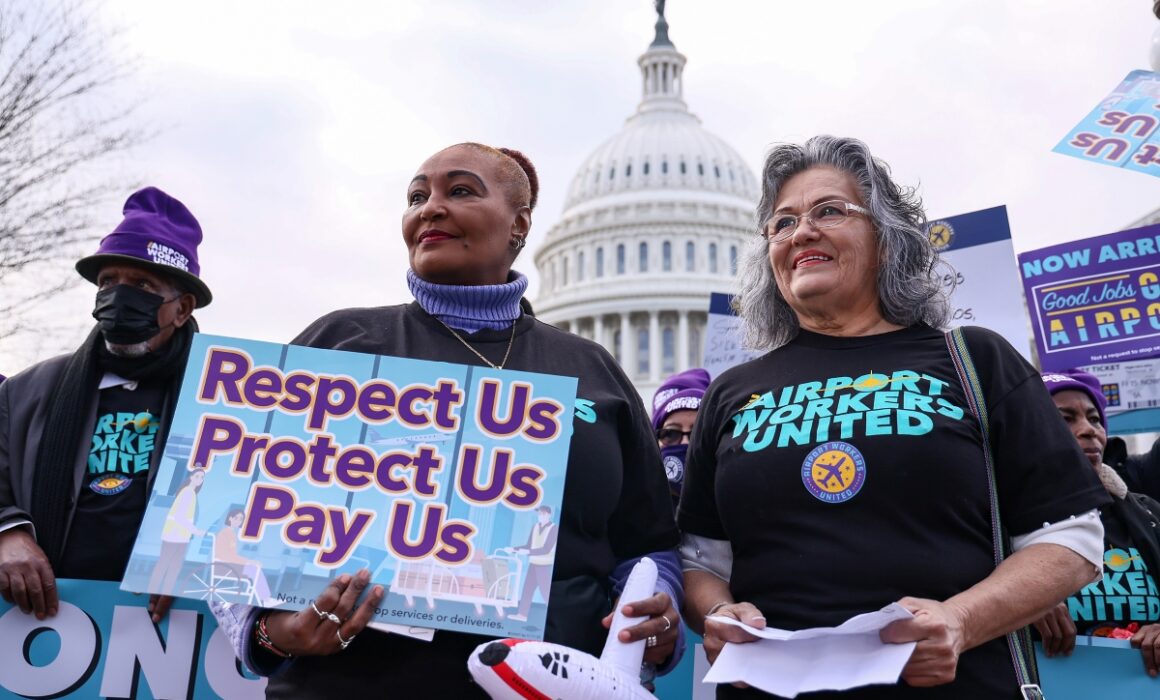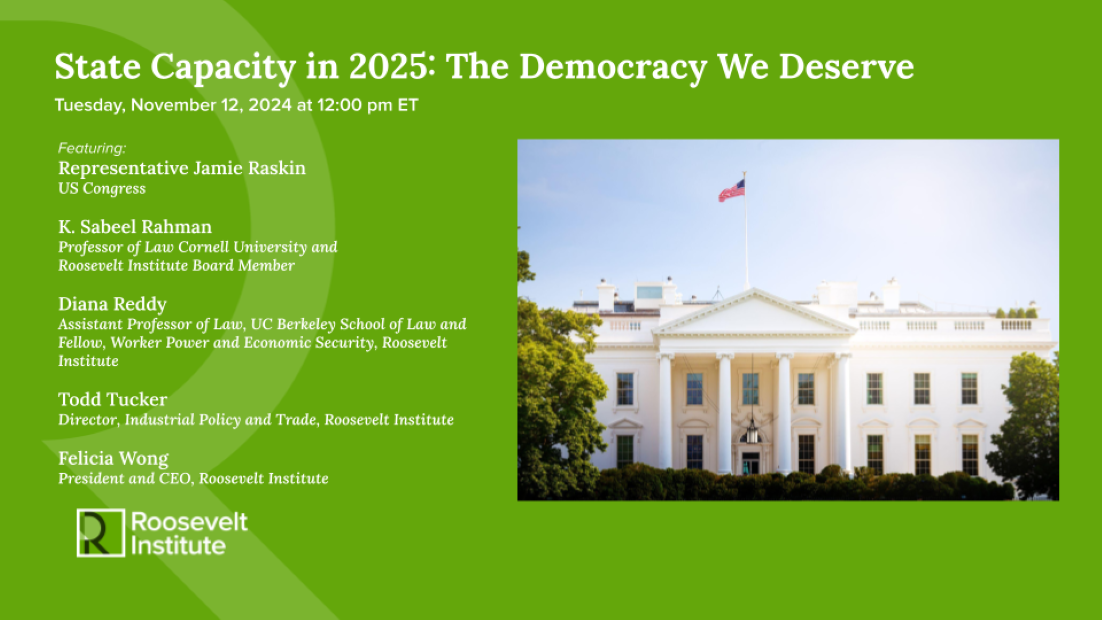Why Labor Law Violators Should Be Excluded from Federal Workforce Funding
October 18, 2024
How legal provisions can ensure accountability.
The Roosevelt Rundown features our top stories of the week.
Airport workers rally in support of a labor bill in December 2022. (Photo by Jemal Countess/Getty Images)
How Guardrails for Federal Workforce Development Programs Can Protect Workers
As the US Senate considers reauthorizing the Workforce Innovation and Opportunity Act (WIOA), a vital source of workforce development funding, the most contentious clause is the proposed “Representation of Compliance” provision. The provision requires employers applying for funding to attest that they have not been found in violation of any covered federal labor law in the two years preceding their application.
In a new brief, Roosevelt’s Alí R. Bustamante argues that this provision is “a necessary safeguard against the misuse of public funds, reinforcing that businesses benefiting from federal workforce programs must adhere to labor laws.” Given the pervasiveness of labor law violations and the clear precedent for these types of guardrails in other areas of workplace legislation, the provision represents a logical next step toward accountability. “The contentious nature of the ‘Representation of Compliance’ provision reflects a broader disagreement about who federal workforce programs should serve: Are they primarily designed to help employers or workers?”
As Bustamante explains, the federal government has a duty to ensure that funding directed toward job placement and training programs is not used to exploit employees—especially the displaced workers, low-income adults, and at-risk youth whose interests WIOA was designed to promote. Restricting federal funding from employers who engage in labor law violations such as wage theft, unsafe working conditions, or illegal discrimination both protects workers and levels the playing field for employers who follow the rules.
Read the full brief: “Excluding Labor Law Violators from Federal Funding Programs.”
The State Capacity Outlook for 2025
On Tuesday, November 12, Representative Jamie Raskin will join a panel of Roosevelt experts for a critical conversation on the future of governance—from the state’s current ability to deliver on public needs to a new presidential administration’s impact on the very functioning and purpose of government.
What We’re Talking About
Ever had trouble canceling a subscription? You’re not alone!
Good news from the @FTC, a new “click-to-cancel” rule will give customers the power to cancel products in just one click. https://t.co/35Yjanvqfh
— Roosevelt Institute (@rooseveltinst) October 16, 2024
What We’re Reading
Tax Cuts for the Rich Create Division, Debt and Despair . . . Not Jobs – Counterpunch – by Roosevelt Fellow Indivar Dutta-Gupta
These Discouraged Workers Are Left Out of the Unemployment Rate – feat. Roosevelt’s Alí R. Bustamante – Marketplace
4.8M Borrowers—Including 1M in Public Service—Have Had Student Debt Forgiven, Biden Admin Says – NBC News



